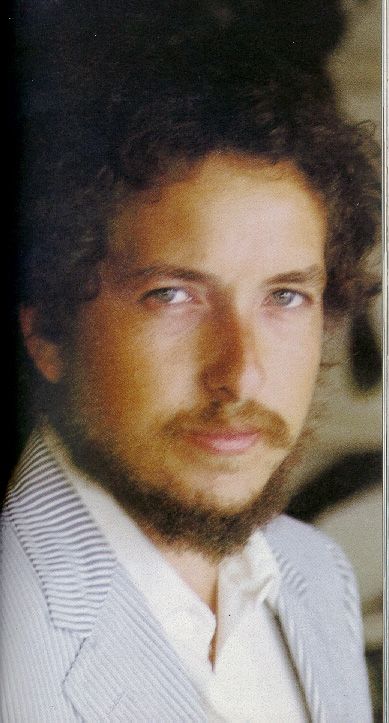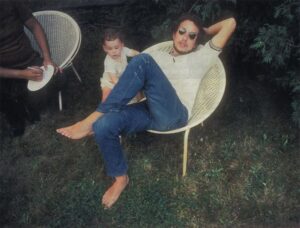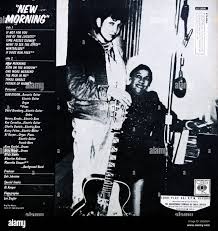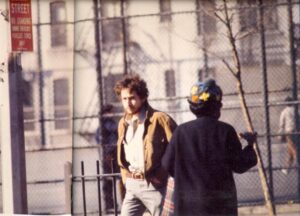Hi folks
Please cleck ‘Watch on You Tube’
Please LIKE AND SUBSCRIBE!!!
EXTRACTS
Bob Dylan’s New Morning (1970) is a sequence of short but highly evocative songs that present his ‘years of rural retreat’ as existing within a bucolic dream landscape. The beauties and mysteries of nature are celebrated alongside idealised images of love and domestic bliss, conceived as being under the guidance of a benevolent ‘fatherly’ deity. The album is Dylan’s most optimistic and ‘warm’ sounding record. In several places it reflects on Dylan’s own childhood in the cold ‘North Country’. Yet there are many hints at the frailty of the personal happiness that is being celebrated. It often seems as if the scenarios we are introduced to could dissolve at any moment. The question that hangs over the album is whether the life he is now leading will really be enough for him in the future. Will he be able to square the delights of domestic bliss with the demands of being a poet who has been inspired by figures like Rimbaud, Whitman, Blake and Ginsberg who were determined to live a ‘poet’s life’ in which the writer opens himself up to all experience, no matter how traumatic?
In later sessions Dylan added Al Kooper (who had famously supplied the crucial organ riff on Like a Rolling Stone) on keyboards and guitar and David Bromberg (who Dylan would later record several sessions with) on guitar and dobro. Dylan plays piano on seven of the tracks and his distinctively ‘choppy’ style is particularly evident throughout. The album also marks his first use of a trio of female backing singers, various permutations of which would be a feature of his live shows from 1978 to 1987. On certain tracks Kooper, who had accumulated much experience as a record producer and arranger since 1966, pushed Dylan to experiment with elaborate string and brass arrangements (as revealed in the outtakes featured on the Bootleg Series release Another Self Portrait, the 1973 ‘blackmail’ release Dylan and the ‘copyright extension’ set 1970). But in the end Dylan settled on a more basic ‘live’ sound for most of the tracks, with producer Bob Johnston adopting his usual ‘hands off’ approach. As a result the music sounds spontaneous and the positivity in the songs is especially life affirming.
The songs of New Morning appear to be taking place in an idealised pastoral Arcadia. The pastoral was a prominent feature of classical literature. The ancient Greek poet Hesiod’s Works and Days is set in a pastoral ‘golden age’ when humans lived in perfect harmony with nature, as is Theocritus’ Idylls. The works of Roman poets such as Virgil in his Ecologues, Horace in his Epodes and Ovid in his Metamorphoses all contain strong pastoral elements. The Biblical Garden of Eden is another idealised pastoral location. With the coming of the Renaissance, pastoral poetry became fashionable once again through the works of Petrarch, Sidney and Spenser. In Shakespeare’s As You Like It the protagonists escape to the Forest of Arden to escape such pressures. The Romantic poets, with their focus on the beauties and ‘sacredness’ of nature, adopted a number of pastoral tropes in works such as Wordsworth and Coleridge’s Lyrical Balladsand Blake’s Songs of Innocence. Many of these poems were, like Dylan’s early songs, written in traditional ballad form. In many pastoral works, the idealised rural locations are presented as an escape from and a contrast to the complications and power struggles of urban life.
By the late 1960s, the ‘back to nature’ movement within alternative culture became prominent, making ‘the pastoral’ a key feature of that culture. Dylan and The Band’s rural retreat in Woodstock was soon to be imitated by many rock bands such as Traffic, Fairport Convention and Led Zeppelin, who were reported to be ‘getting it together in the country’. Such retreats were often positioned as reactions to the excesses and temptations of urban life, with particular reference to excessive drug taking and sexual profligacy. New Morning is one of Dylan’s most ‘autobiographical’ works in that the songs mirror his own retreat from the spotlight of endless tours and promotions. Like the pastoral poets, he imagines himself in a dreamlike ‘state of nature’ which is linked to a kind of spiritual reawakening and a deep enjoyment of simple natural pleasures. His ‘songs of experience’ behind him, he presents his own ‘songs of innocence’. But there is always a hint that the ‘songs of experience’ will one day return. Despite the sheer happiness that is conveyed in many of these short melodic pieces, there is a sense that the singer may soon wake up from his dream.
Time Passes Slowly illustrates these themes with great clarity. The recording is dominated by the interplay between Dylan’s staccato piano runs and snatches of lyrical guitar. The ‘jumpy’ and unpredictable piano lends an air of uncertainty to the song which contrasts against the apparently passive tone of the lyrics. Despite the ‘dreamy’ nature of the song Dylan’s vocal expression tends towards the harsh tones of his pre-1967 work, presenting an illuminating disparity between what is being described and the manner the description is presented. The song begins by instantly placing us within the Arcadian reverie: …Time passes slowly up here in the mountains/ We sit beside bridges and walk beside fountains/ Catch the wild fishes that float through the stream/ Time passes slowly when you’re lost in a dream… Dylan has been quoted as saying that his ambition in writing his songs is to ‘stop time’. Here time has not so much stopped as slowed down, like a silent film being projected at the wrong speed. As in Blake’s Songs of Innocence the imagery is clear, direct and generalised: mountains, bridges, streams, fishes… The fishes are not swimming but ‘floating’; an image of effortlessness, of nature carrying along the narrator – like those fishes – by the currents. But already it is clear that this is all a dream in which the narrator is ‘lost’.
The beautifully enigmatic Sign on the Window is perhaps the most fully realised expression of the dilemma Dylan found himself at the end of the 1960s. It conveys a mixture of sadness, elation and philosophical resignation which is virtually unique in popular song. It is also dominated by Dylan’s distinctive piano, which sometimes carries the track alone, with a few interjections of bass and drums and some restrained backing vocals from the female singers. Midway through the song Al Kooper’s organ is featured in a duet with the piano, rather like Richard Manuel and Garth Hudson in The Band. The song is a meditation on the benefits of a pastoral retreat and is a tentative embrace of the kind of conventional values that Dylan’s work had once eschewed.
As in Time Passes Slowly, the way the music rises and falls in tone mirrors the narrator’s scattered thoughts. Here the sense of uncertainty is, however, more pronounced. The verses seem somewhat disconnected, as if we are following the narrator’s random thought patterns. It is not clear whether he is a participant in events or just an observer. Dylan’s vocals are sweeter and more restrained than on Time Passes Slowly. Again the song has three short verses and a bridge. The final line of each verse is repeated. Each verse seems self contained. It is as if we are being given a privileged glimpse into the narrator’s mind as he speculates on what his life should be like. As with the earlier song, the listener is left to ‘fill in the gaps’ between apparently random statements. But the impassioned vocals and striking piano playing give the impression that the narrator himself is wrestling with issues that are quietly tormenting him, while still being ‘lost in a dream’.
The first verse presents us with a series of ‘signs’ which can be interpreted in many ways: …Sign on the window says ‘Lonely’… takes us into Roy Orbison territory. We may expect this to be a song of self-pity. But this is followed by the rather harsh …Sign on the door says ‘No Company Allowed’ … Now we get the impression that the narrator’s isolation is quite deliberate. Then there is a hint of a personal drama: …Sign on the street says ‘You Don’t Own Me’… suggesting that the isolation is a reaction to an over-possessive lover. Finally …Sign on the street says ‘Three’s a Crowd’… may suggest that the protagonist has been involved in some kind of stressful ménage-a-trois. Perhaps he has a partner behind that imposing door. Or perhaps, as the next verse infers, his lover has left with a different partner. Here and in succeeding verses the repeated last line appears to represent the narrator attempting to reassure himself that he really believes in his protestations.
—-
Went to See the Gypsy is another highly ambiguous song whose narrator gives us a certain amount of information and lets us imagine the rest of the action. Like Time Passes Slowly and Sign on the Window it is impressionistic piece with a dreamlike tone which again follows the typical ‘pop format’ of three verses and a bridge. The album version is dominated by Dylan’s piano, with Al Kooper providing washes of organ. Several earlier takes appear on Another Self Portrait and 1970. On the ‘New Morning outtake’ he takes the vocal slowly and sonorously. The ‘demo’ version contains slightly different lyrics. Rather than being led by piano, it features two ‘duelling acoustic guitars’ played by Dylan and David Bromberg and ends with a haunting guitar solo by Bromberg.
The song has long been recognised as an account of a real or (most probably) imagined meeting with Elvis Presley. Dylan once stated in an interview that he had never met ‘the King’, preferring to remember him as the magically iconic performer of the late 1950s who had inspired him to take up music, rather than the ‘neutered’ figure who had spent most of the 1960s appearing in increasingly shoddy and forgettable Hollywood movies. The personification of Elvis as a ‘gypsy’ is interesting if ambiguous. There had at one time been rumours that he did indeed have Romany blood, although these are highly unsubstantiated. It is more likely that Dylan identified some kind of untamed ‘gypsy spirit’ in Presley’s wildly sensual performances. During the New Morning sessions Dylan recorded covers of two Elvis songs, Can’t Help Falling in Love and A Fool Such As I, both of which appeared on the Dylan album in 1973.
Having built us up for the encounter, we then take an unexpected sideways turn. The narrator leaves the party to go down to the lobby to …make a small call out… This again suggests that he may be rather bored or unimpressed by events upstairs and has made an excuse to exit the scene. Making a ‘small call out’ seems hardly appropriate when engaged in a meeting with the world’s most famous musician. The narrator then encounters a ‘pretty dancing girl’ (who presumably is employed as ‘eye candy’ in one of the Vegas hotels) who implores him to return to the party immediately: …Go on back to see the Gypsy… she shouts …He can move you from your rear/ Drive you from your fear, bring you through the mirror/ He did it in Las Vegas/ And he can do it here… Her description of ‘the Gypsy’ is an eloquent description of the transformative effect Elvis could have on people, ‘bringing them through the mirror’ so they could see themselves in a different way.










Leave a Reply